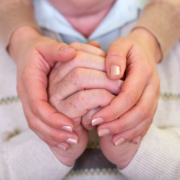Arthritis Symptoms, Treatments & Diagnosis | Senior Housing Ashland NE
Arthritis occurs when your joints become swollen and painful, making it challenging to move around comfortably. If left untreated, it can make everyday activities, such as walking, cooking, or even typing, a struggle. It’s essential to take it seriously, whether it’s happening to you or someone you know, to prevent further pain down the road.
Arthritis and Aging
Osteoarthritis, the most common type of arthritis, becomes more prevalent with age and significantly impacts older adults. This degenerative joint disease occurs when the cartilage that cushions the joints breaks down, leading to pain and stiffness.
The causes of arthritis among seniors are often linked to a combination of lifestyle and genetic factors:
- Age-related wear and tear on joints
- Joint injuries or surgeries from earlier years
- Obesity, which increases pressure on joints
- Family history of arthritis
If left untreated, unmanaged arthritis in seniors can worsen, leading to permanent joint damage and decreased mobility. This may cause difficulty with everyday tasks such as walking or dressing. For those in senior housing Ashland NE, addressing arthritis early on is vital to maintain independence and a good quality of life.
Early Signs and Diagnosis in Senior Housing Ashland NE
Arthritis includes various types, each affecting joints in distinct ways. Residents in senior housing Ashland NE may encounter specific forms of arthritis as they age, with symptoms that vary depending on the type.
- The most common form, caused by the wear and tear of cartilage, often affects weight-bearing joints, such as the knees and hips.
- Rheumatoid Arthritis. An autoimmune disease in which the body attacks its joints, typically starting in smaller joints, such as the fingers and toes.
- Psoriatic Arthritis. Linked to psoriasis, it affects the joints and skin, causing swelling and, in some cases, deformity.
- Caused by the buildup of uric acid crystals in joints, most commonly the big toe, leading to sudden, severe pain.
Symptoms and diagnosis can differ depending on the type of arthritis. In general, common signs in seniors include:
- Joint pain, especially after movement or in the morning
- Swelling, particularly in the fingers, knees, or hips
- Stiffness that worsens with inactivity
- Decreased range of motion in affected joints
Diagnosing arthritis involves a combination of physical exams and tests. Common procedures include:
- X-rays to observe joint damage or cartilage loss
- Blood tests to detect markers of inflammation or autoimmune activity
- MRI or ultrasound to examine soft tissues and joint fluid
Treatment Options: Medication, Therapy, and Holistic
Arthritis can significantly affect a senior’s daily routine, but with the right treatments, its impact can be managed to allow for a better quality of life. Residents of senior housing Ashland NE can benefit from various options to ensure they can still engage in everyday activities.
- Medications are typically the first line of defense, with nonsteroidal anti-inflammatory drugs (NSAIDs) and disease-modifying antirheumatic drugs (DMARDs) helping reduce inflammation and ease pain, allowing seniors to stay more active.
- Physical therapy is another important treatment, offering personalized exercises that focus on improving joint mobility and strengthening muscles in affected areas, which is especially helpful for seniors dealing with the stiffness and pain associated with arthritis.
- Holistic treatments, such as acupuncture, dietary adjustments, or massage therapy, can also complement traditional methods by providing relief and enhancing overall well-being, promoting a more holistic approach to arthritis care.
By increasing awareness of arthritis and its management, seniors and their families can make informed decisions to ensure that the challenges of arthritis are addressed with care and attention.
Richmont Senior Living is proud to serve Ashland, NE and the surrounding cities: Memphis, Springfield, South Bend, Greenwood, Murdock, Waverly, Murdock, Ithaca, and Chalco






